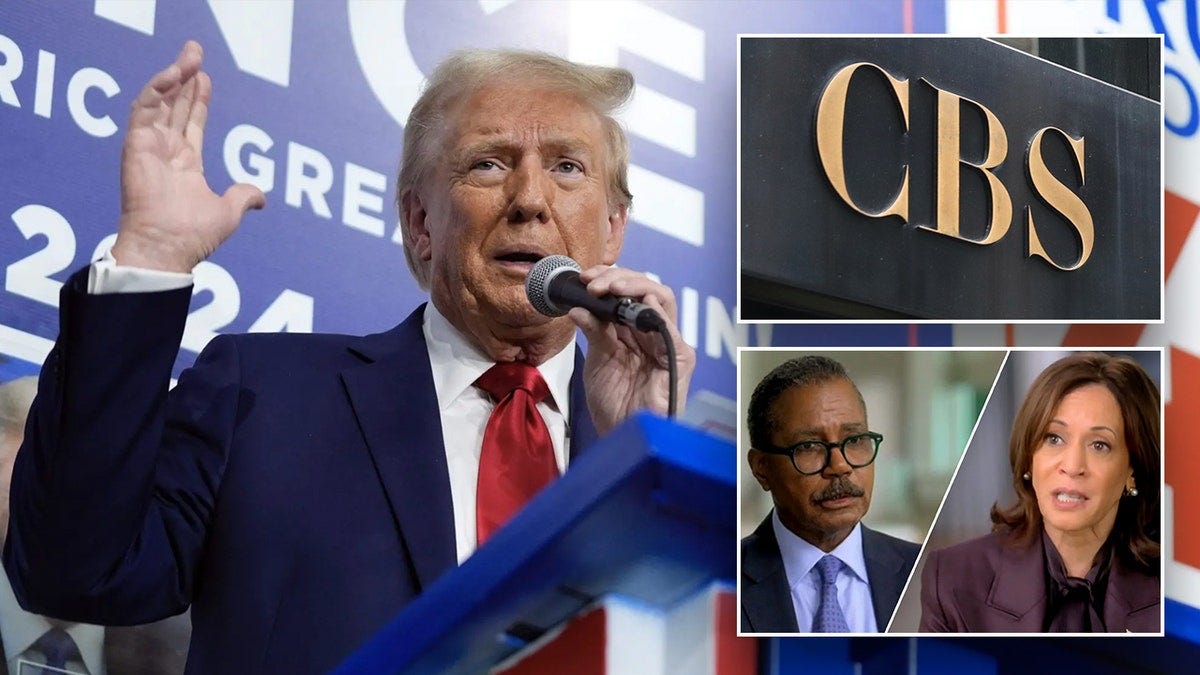POTUS is a busy guy these days. I’m sure tariffs, his policy agenda, and Elon quitting Washington are taking up quite a bit of his time. But nothing gets the man going like a lawsuit and public battle with the media. The guy loves a fight with news organizations like I love a good hazy IPA on a summer afternoon.
On Thursday, President Trump turned down a settlement offer of $15 million from Paramount Media in the ongoing case between the two, where Trump filed a lawsuit claiming the media conglomerate conspired to suppress information harmful to his political opponents (Kamala Harris’s 60 Minutes interview that ran during the campaign) under the guise of editorial judgment. He claims the interview was edited to make Harris appear more favorable.
Paramount has denied wrongdoing, arguing that its editorial decisions were protected under the First Amendment and not subject to government interference. It is a widely accepted practice to edit interviews. And while they could prevail in court, legal analysts have speculated that a financial settlement would allow both sides to avoid a messy trial. The studio isn’t exactly coming to the table with the purest intentions. They are hoping to get the green light to merge with Skydance Media. The deal is surely to get nixed should they lose the case. A settlement would more than likely give the ok for the merger to move forward. Hence, the $15 million, and a particularly juicy shit show to watch.
By turning down the offer, POTUS has continued his ongoing war against the press. He wants $25 million from Paramount and is threatening a second lawsuit, claiming the organization is biased. He also wants a public apology.
Paramount is just a name on a list that includes NPR, ABC News, the Washington Post, and other media entities that Trump has identified as enemies of the state, where the only way to get out of it is to pay up. As I write this, there is momentum that the two sides are closing in on a number.
Whether media companies fight or settle with the administration remains the strategic question of seemingly epic monetary proportions facing the industry while Trump occupies the White House. Legal analysts suggest that First Amendment rights allow quite a bit of leeway for the media, and in many of these cases, indications are that the entities would win if they pushed the issue in court. However, there are fewer examples where news outlets have the stomach for that due to downstream business interests.
The Paramount situation is another example in the same vein as the Washington Post’s decision to alter what it publishes in its opinion section for fear of retaliation by the Trump administration on Jeff Bezos’s other businesses, or the ABC News settlement being a way to protect its mothership, Disney from attacks by the administration. In a world where everything is consolidated, news verticals become easy collateral against the others that provide shareholder value.
I’m aware that I spend too much of my free time thinking about situations like this, but the whole saga raises both practical and existential questions, some of which are probably unanswerable.
Were you the CEO of a news org, what would you do?
Is the fight worth it? If you are an independent journalistic outlet, the answer is pretty simple. Informing the public, analyzing the day-to-day of the administration, publishing opinions, and participating in the discourse are the whole point of getting into the business. The accusations of bias come with the territory. Yes, CBS News is left-leaning, but not more radical than what someone would see on Fox News. The odds are they would win in court.
Acquiescing to the administration is also a dangerous precedent to set. Trump isn’t going to be President forever, but in offering settlements, media companies are setting their price for compliance with a particular political machine. Surely future politicians will be ready to utilize the same strategies should things go sideways in the future.
So yeah, you fight it. If that’s the case.
The reality is that there just aren’t that many independent outlets anymore. Consolidation has wreaked havoc on the industry, and many outlets are owned by businesses with much more profitable verticals to consider. No one within the news organizations is making the decisions, which turns journalism into a bargaining chip. Instead, it’s made at a higher, more strategic level to protect the value of larger brands. And thus, we arrive at the existential Catch-22 scenario and crossroads regarding the future of the media. If it doesn’t make money and can be controlled by political interests, it’s the antithesis of the role it’s supposed to play, which is a particularly bleak scenario.
I’ll take those IPAs now.




